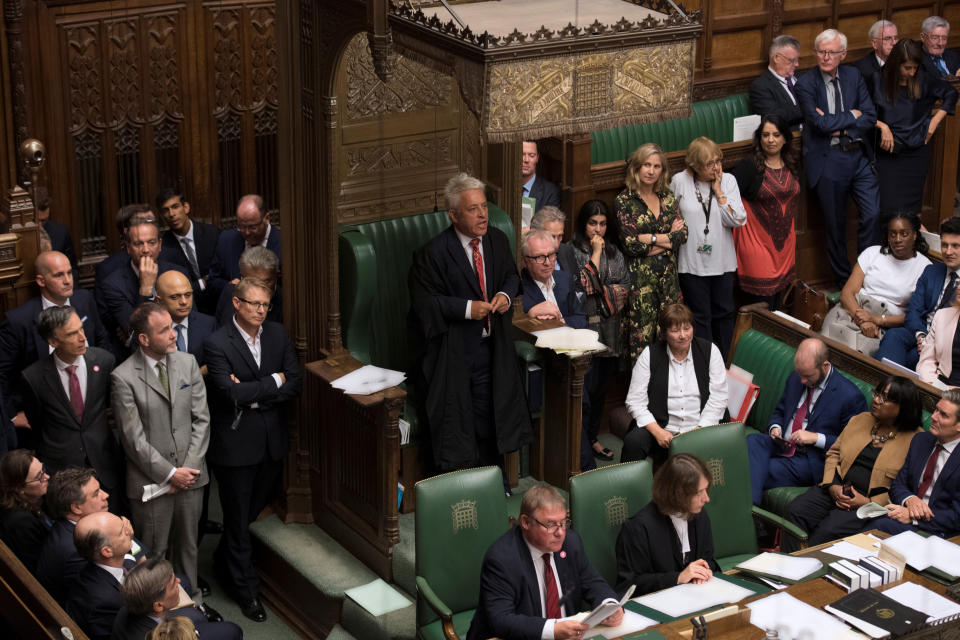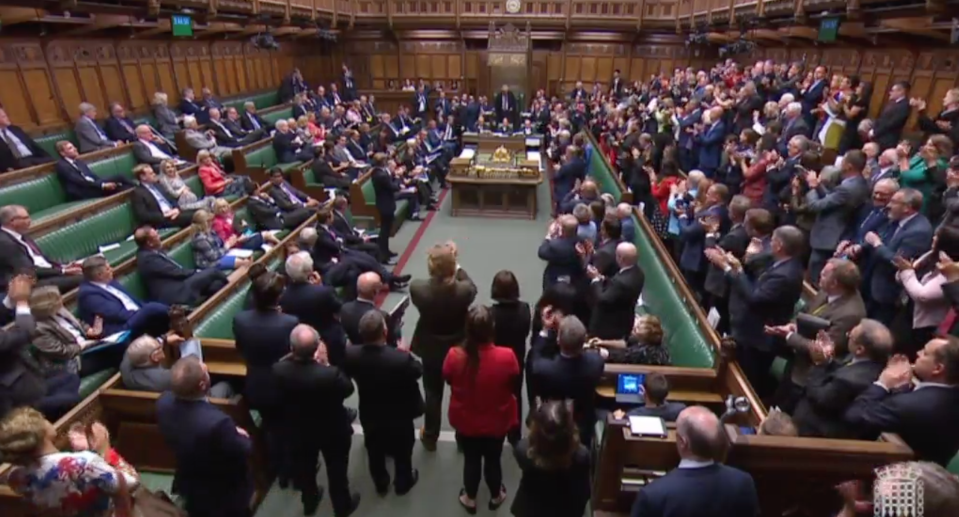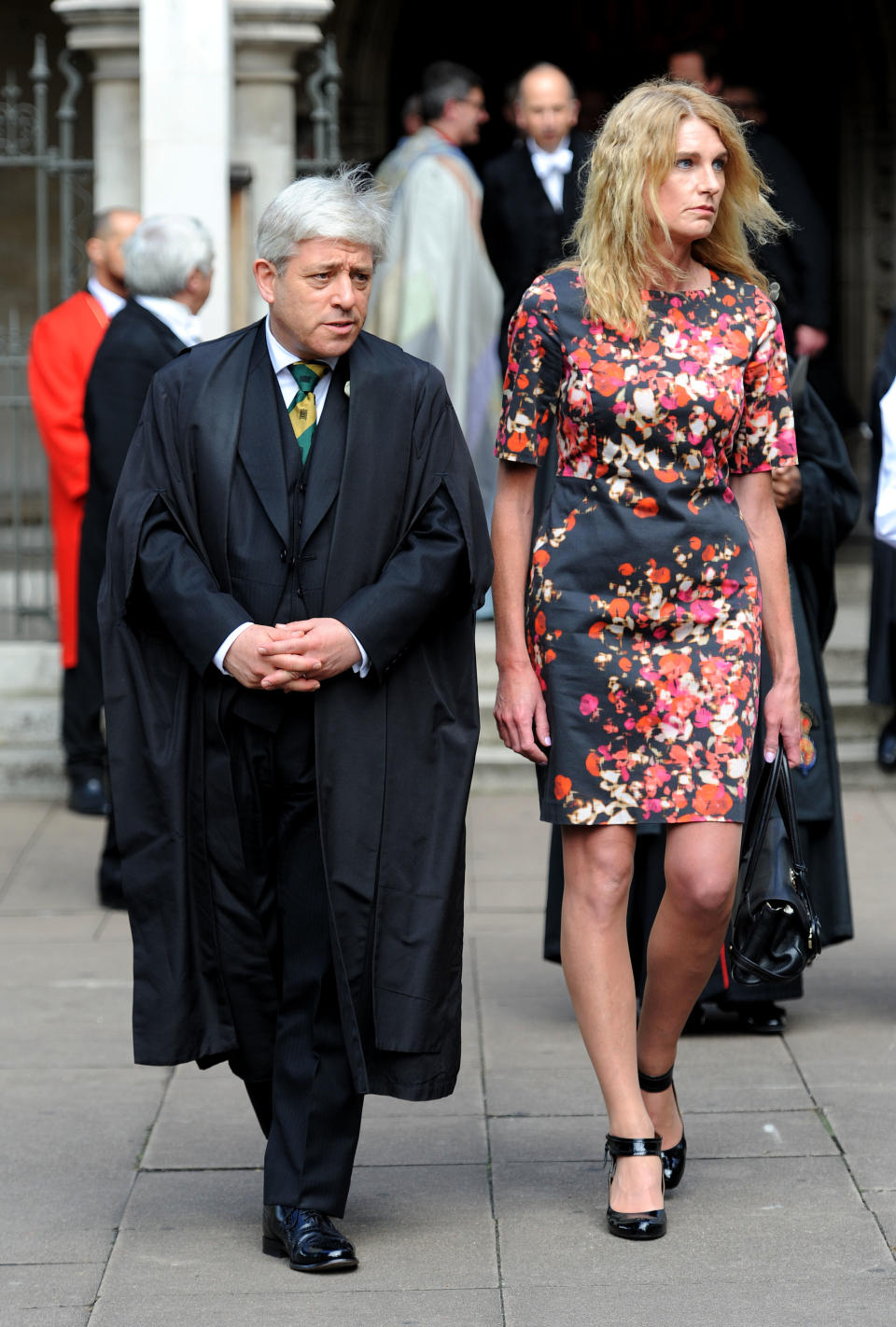John Bercow to step down as Commons Speaker by the end of October
Commons Speaker John Bercow was snubbed by Tory MPs who refused to applaud as he announced plans to step down next month.
Mr Bercow, who has spent a decade as Speaker, announced his decision to quit by the October 31 Brexit deadline in an impassioned speech to MPs on Monday.
He described his position as “the greatest privilege of my professional life”.
He also made a heartfelt tribute to his family during the announcement as his wife, Sally, watched from the Commons gallery.
The emotional speech received a mixed response, however, with most Tory MPs refusing to join Labour counterparts in giving him a standing ovation.
Addressing the Commons, Mr Bercow said: “At the 2017 election, I promised my wife and children that it would be my last.

“This is a pledge that I intend to keep. If the House votes tonight for an early general election, my tenure as Speaker and MP will end when this Parliament ends.
“If the House does not so vote, I have concluded that the least disruptive and most democratic course of action would be for me to stand down at the close of business on Thursday, October 31.”
Mr Bercow added that he could not have served as Speaker without the support of MPs.


John Bercow has been a remarkable Speaker of the Commons - championing charities, supporting equality & diversity, making Parliament family friendly, bringing schools into the building - but most of all helping the elected Commons hold those in power to account. We will miss him
— Yvette Cooper (@YvetteCooperMP) September 9, 2019
Good riddance. https://t.co/2u2H80wKxr
— Nigel Farage (@Nigel_Farage) September 9, 2019
He also said: “This is a wonderful place filled overwhelmingly by people who are motivated by their notion of the national interest, by their perception of the public good and by their duty, not as delegates, but as representatives, to do what they believe is right for our country.”
He added: “We degrade this Parliament at our peril.”
Mr Bercow first took the Speaker’s chair on June 22, 2009, promising to serve “no more than nine years in total”.
He abandoned that commitment ahead of the 2017 snap election, but allegations of bullying by former members of his staff, denied by the Speaker, led to calls for him to quit.
Unpopular with Tory MPs
In recent months he has also come under fire for a series of controversial rulings that were considered by some to favour Remain supporters.
There were dramatic scenes in the Commons after his speech today when everyone on the Labour benches rose to unanimously applaud Mr Bercow – but only a handful of Conservatives joined in.
Mr Bercow has had a volatile relationship with parts of the Conservative Party during his reign as Speaker.
In January, he angered many pro-Brexit MPs by allowing one of their pro-EU colleagues to seek to force the government to come back to parliament to set out its next steps within three days of Theresa May’s Brexit deal being rejected.

Mr Bercow clashed with government ministers as recently as last week, when he was accused of “ranting like a lunatic” at Michael Gove as he mentioned the MPs children in a bizarre Commons rant.
On Sunday, the Business Secretary Andrea Leadsom revealed that the Conservatives would field a candidate against Mr Bercow at the next election.
In a breach of long-standing convention, Ms Leadsom stepped up her feud with Mr Bercow, accusing him of breaking the rules of Parliament by allowing MPs to take control of Commons business.
In a stinging attack, Ms Leadsom said Mr Bercow had “failed” in his role and had permitted a “flagrant abuse” of parliamentary process.
In May last year the Speaker was alleged to have labelled Ms Leadsom as a “stupid woman”, as well as calling her “f****** useless”.

Bercow said during his resignation speech that he has “sought to be the backbenchers’ backstop”, and thanked his team in the Speaker’s House for their work behind the scenes.
Mr Bercow said: “I could not serve this House without a small but superb team in the Speaker’s House, my wife, Sally, and my three children, Oliver, Freddie and Jemima.”
He added: “From the bottom of my heart, I thank them all profusely.”
Bully accusations
In May last year, a committee of MPs voted against launching an investigation into allegations of bullying by Bercow – allegations his office rejected.
In October, Bercow resisted pressure to step down after an independent report found the House of Commons had allowed a culture of bullying and sexual harassment to thrive, and said its top officials might need to be replaced to restore confidence.
Labour lawmaker Margaret Beckett dismissed calls for him to go, saying “the constitutional future of this country ... trumps bad behaviour”.
What is the role of the Speaker?
The Speaker will now need to be replaced in November.
The Speaker of the House of Commons chairs debates, keeping order and calling members of parliament to speak.
They can ask MPs to be quiet so others can be heard, demand MPs withdraw certain comments, and even suspend MPs who deliberately disobey them.


The Speaker is the highest authority of the House of Commons and is required to remain politically impartial. Therefore he or she is not a member of a political party while in office. The Speaker also represents the House of Commons to the monarch.
Speakers are elected by secret ballot. They do not take part in debates or votes in parliament, except in the event of a tie, when the convention is that they cast the deciding vote.
The Speaker stands in national elections but is traditionally not opposed by the major parties.

 Yahoo News
Yahoo News 
